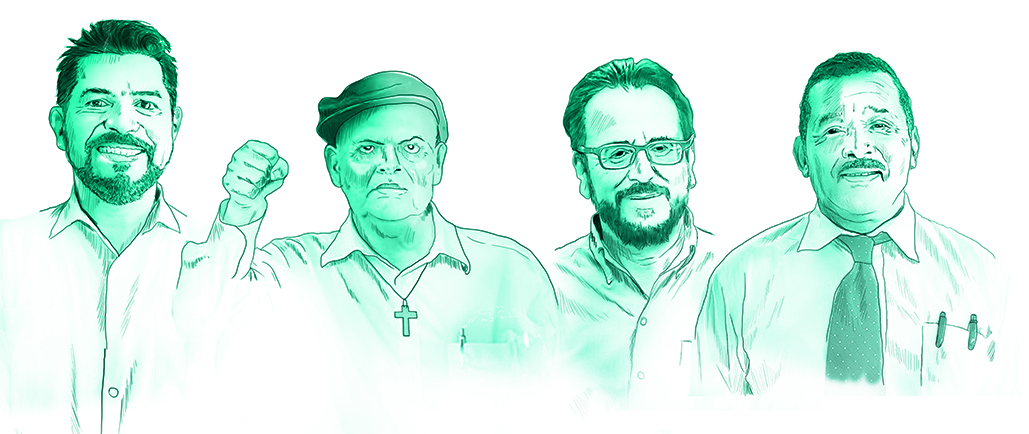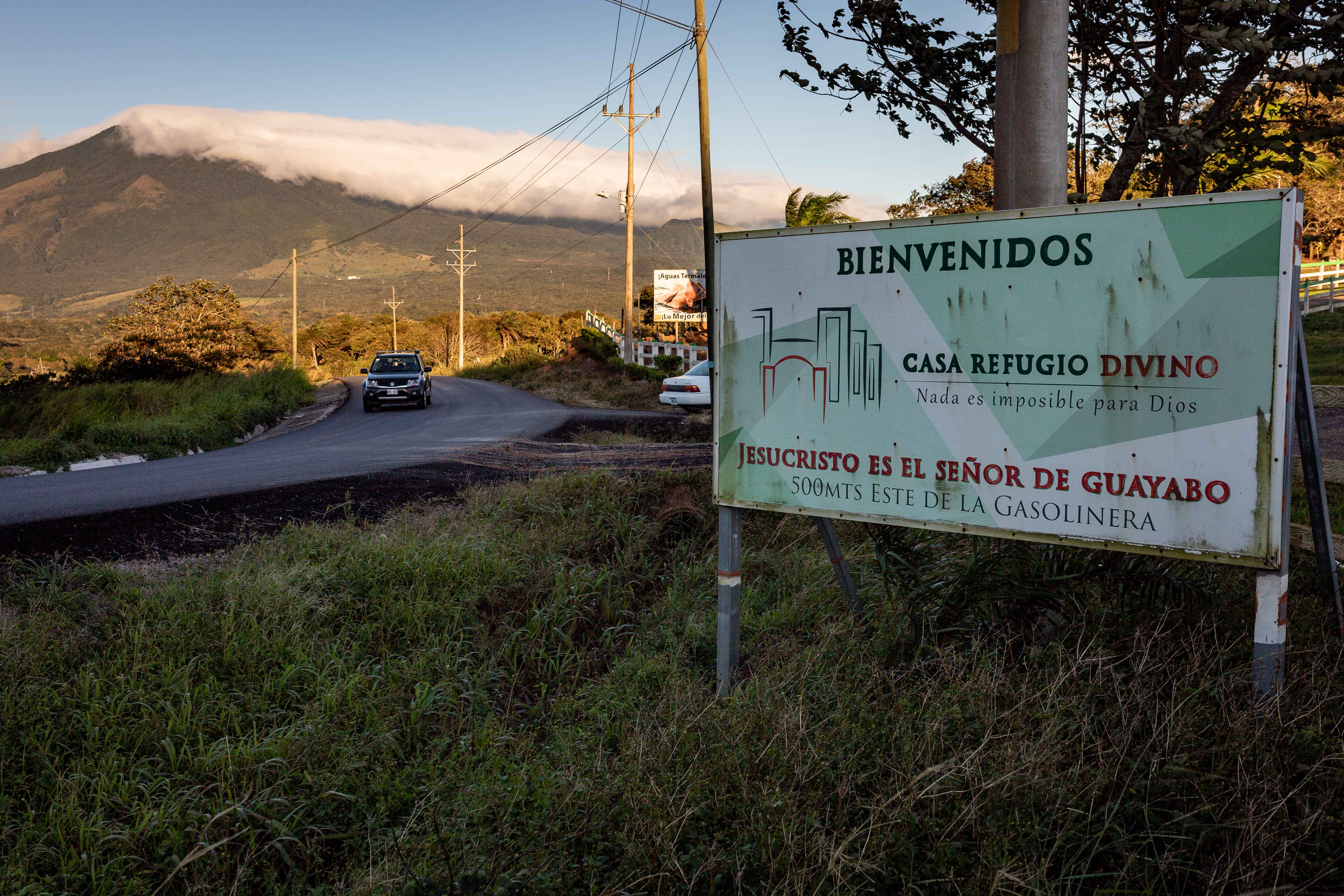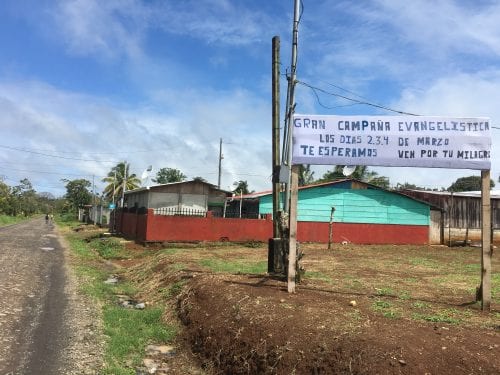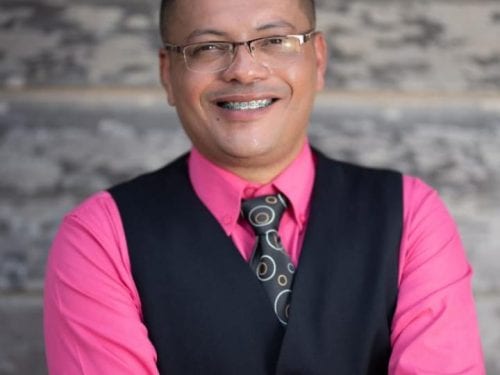
Four candidates for mayor in Guanacaste are evangelical pastors and religious leaders. Three of them have extensive experience in their congregations and lead the ballots for conservative parties such as New Republic (PNR- Partido Nueva República) and National Restoration (PRN- Partido Restauración Nacional). The fourth is a spiritual guide who is running with the Only Abangareño Party (Único Abangareño).
The Voice of Guanacaste reviewed the list of all of the candidates for mayor in Guanacaste provided by the Supreme Electoral Tribunal (TSE) and checked the relationship of the candidates with churches against databases and official web pages of the candidates and the congregations.
The evangelical candidates decided to separate themselves from the Costa Rican Evangelical Alliance Federation (AEC) pronouncement, which asked evangelical leaders to stop getting involved in electoral politics. The call was made by the organization in June this year, after the 2018 national elections in which an evangelical leader made it to the second electoral round for the first time in history.
I am concerned about the participation of the church, of the leaders in party politics. That is something we should not get involved in, much less facilitate our resources, infrastructure, pulpits or our services,” the president of the group, Rigoberto Vega, had told The Voice of Guanacaste.
The New Republic candidate in Bagaces, Evelio Álvarez Molina, told The Voice that he was one of the first to oppose that pronouncement from the AEC. “The Bible commands us to be part of the government, that we have to be the head and not the tail,” he explained.
Others said the AEC request limits their intentions to serve and that they know how to solve community problems because of their experience in the churches. They also promise that they will promote policies so that their cantons adhere to “Christian principles and values.”
Álvarez said that if he gets elected to the mayor’s office, the municipality will take an official position and will rule against government human rights policies such as the therapeutic abortion technical regulation and same-sex marriage.
People (municipal officials) who have their way of believing are going to be respected, but we are not going to be silent about this,” he affirmed.

From left to right: Candidates Pablo Guevara of the National Restoration party in Cañas, Gerardo Cascante of the Only Abangareño party in Abangares, Evelio Álvarez from the New Republic party in Bagaces and Martin Leonardo Contreras of the National Restoration party in Carrillo are religious leaders in their communities.
Facebook, Churches and Values
Evelio Álvarez leads the Divine Refuge, a congregation of 260 people located in Guayabo of Bagaces, and is presbyter (or supervisor of congregations) of the Assemblies of God Pentecostal organization, which brings together more than 1,000 churches throughout Costa Rica, according to Álvarez.
Through the Bagaces New Republic Facebook page, Álvarez published a video in which he took a stand against the therapeutic abortion regulation. He calls it the “death penalty” and mentions biblical quotes to support his position. Therapeutic abortion is the medical interruption of pregnancy when the life or health of the mother is in danger and is legal since 1970, when the Criminal Code was published.
These actions by Álvarez go against the TSE’s prohibition against using religious speeches as part of the campaigns for the 2020 municipal elections.
The TSE cites article 136 of the Electoral Code, which prohibits reference to religious issues in activities that seek to gain followers during election campaigns.
National issues and especially polarizing issues [such as therapeutic abortion], should not have any presence in the pre-election discussion at the municipal level,” TSE president Luis Antonio Sobrado told AmeliaRueda.com.
“It is not the first time we have called for all of us to focus on these local issues and not try in an irresponsible manner to bring to the discussion issues of national scope that have nothing to do with the electoral process,” Sobrado added.
However, the New Republic candidate stated that in the church they do not carry out proselytizing activities (looking for political followers). “We completely separate politics from church activities. We handle the political part more than anything in social networks [of the political party].”
Cañas: The Canton That Elected the Restoration National Party
In Cañas, the vice mayor and pastor of the Oasis de Esperanza (Oasis of Hope) Church, Pablo Guevara, is hoping to be the municipal head as of 2020 and, when consulted by The Voice, said that in this campaign, he will keep his congregation and his religious discourses separate from the political campaign.
Well, you know that in the last elections, the TSE came to separate these kinds of things,” he said, referring to political and religious activities together.
Guevara was a candidate for legislator for the Legislative Assembly in 2014. At that time, he shared on his Facebook page publications of activities held by his religious community.
In 2016, when he was seeking the position of vice mayor with the National Liberation Party (PLN- Partido Liberación Nacional), his church mobilized to support him in Cañas. “The church has always supported previous campaigns. We made groups to go knocking on doors,” Guevara related.
What he did say is that, if he becomes mayor, he will continue to allocate municipal resources for activities that “encourage Christian values and principles.” He did this for example in 2017, when he organized an evangelical camp with other churches for 200 children and adolescents at La Montaña Christian Camp in San Ramon in Alajuela. The Municipality invested ¢6.5 million (about $11,000) to “train youth leaders for aggressive, radical and discipleship evangelism,” according to the description on the ministry website in San Ramon.
It is within my government plan and we are going to make the budgetary reserves, as we have done in these years, to continue strengthening the family, marriages and youth, regardless of religion, creed or whether or not they have a religion,” he explained.
The same belief is shared by the Restoration candidate for vice mayor, Ruth Porras, sister of Sixto Porras, Ibero-American regional director for the Christian NGO Enfoque a la Familia (Focus on the Family).
“We must look for resources through international co-operations such as NGOs that generate social benefits and quality of life for our citizens,” said Porras. “[Organizations like] World Vision, which works with families throughout childhood,” she added.
Political-Religious Ties
In the middle of the political campaign, on November 20, the Oasis de Esperanza evangelical church in Cañas renewed its cover photo on Facebook: Pablo Guevara is now seen with Mileidy Alvarado on his left and his wife on his right.
Together they are the face of the largest church in the canton— with about 350 members, according to Guevara’s calculations— and the largest exponents of the National Restoration party in Cañas.
Oasis de Esperanza is located at the entrance of a community in Cañas called Bebedero, which played an important role in the 2018 presidential elections. It was the district of Guanacaste with the greatest support for the National Restoration Party (PRN), which at the time included members like religious singer and candidate Fabricio Alvarado, current legislator Mileidy Alvarado and Pablo Guevara, himself.
During that election campaign, the church’s Facebook page echoed the messages of the Restoration National Party.
“National Restoration Party. An intelligent vote”, they wrote through the page when sharing a photo of Fabricio Alvarado.
Mileidy Alvarado goes with Guevara on his tours of the towns, but the candidate does not believe that this link is a springboard to getting into power. However, he says that his close relationship with the legislator would help solve problems and strengthen his projects.
“That closeness and trust that we have allows us to direct the projects that I have, and she helps me from the Legislative Assembly,” says Guevara.
Christian Advantage
Martin Leonardo Contreras is a candidate for the Restoration National Party in Carrillo, presbyter of Assemblies of God— like Álvarez, the candidate in Bagaces— and pastor of Piedra Angular (Cornerstone), an evangelical church in his community. Both of them believe that being from religious congregations gives them an advantage: the possibility of being in contact with masses of people.
“I am supervisor-presbyter of Carrillo and Santa Cruz. That gives one experience, relationships and knowledge of people,” Contreras expressed. “It has given us the advantage because people are wanting governments with principles and values,” Álvarez said for his part.
Theologian and sociologist at the National University, Alberto Rojas, had explained to The Voice of Guanacaste in June 2019, for the article “A Look at Evangelical Influence in Guanacaste,” that evangelical voters tend to identify with candidates who insist on speaking of their “Christian values.”
Add to this that pastors always have the opportunity to profile themselves as political figures. “Remember that the parties work every four years, but the churches have constant ties,” political scientist Rotsay Rosales had told the university weekly Semanario Universidad.
Pablo Guevara explained that this possibility of always being active helps them to know the challenges people face. “The needs are daily in our pastoral office. People arrive without work, without employment, marital problems, drug addiction problems,” he said. “I have very clear proposals. I have the means how and it has nothing to do with spiritual issues,” he declared.
Guevara says he will continue as a pastor even if he gets elected as mayor. Leonardo Contreras in Carrillo expects to do the same. On the contrary, Álvarez, from Bagaces, said that he would stop directing his church.







Comments